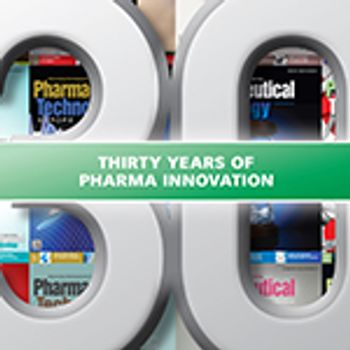
The European Commission has approved an extension of the use of Dupixent (dupilumab) within the EU to include patients aged 12 to 17 years old with moderate-to-severe atopic dermatitis.

The European Commission has approved an extension of the use of Dupixent (dupilumab) within the EU to include patients aged 12 to 17 years old with moderate-to-severe atopic dermatitis.

The agency is planning to clean out its drug listing records and urges companies to update any inaccurate active drug listing submission.

Spectrum Laboratory Products received an FDA warning letter after violations were found at its New Brunswick, NJ facility.

A New Jersey court upheld the validity of patent claims for Amgen’s anti-inflammatory blockbuster biologic, Enbrel (etanercept).

Ridge Properties LLC DBA Pain Relief Naturally is voluntarily recalling four lots of 4% lidocaine topical cream and liquid gel products due to microbiological contamination and incorrect potency.

The guidance answers questions about how the agency awards priority review vouchers to sponsors of treatments for rare pediatric diseases.

The guidance discusses clinical trial design features that can support approval of treatments of Fabry disease.

A US District Court in Washington, DC upheld FDA’s interpretation of clinical need when choosing which substances are approved to use for drug compounding.

The agency is keeping Zolgensma on the market as it evaluates the accuracy of data submitted with the product’s biologics license application.

Quality risk management plans provide identified actions to ensure a continuous supply of safe and effective drug products, says Susan J. Schniepp, executive vice-president of post-approval pharma and distinguished fellow, Regulatory Compliance Associates.

New tools and policies aim to support more complex manufacturing processes.

A risk-based approach to CMC enables drug sponsors to focus on clinical and manufacturing development paths.

Harmonization of regulatory guidelines not only reduces workloads for manufacturers and regulators but can potentially help to accelerate patient access to vital therapies.

European Union regulators have taken a significant step towards resolving some of the major supply-chain difficulties behind medicine shortages.

Machine vision systems have been an integral part of pharma manufacturing and packaging for many years and, with the introduction of stricter safety regulations, are set to become more vital.

Much has changed in the bio/pharma industry over three decades. In this special feature, the editors take a trip down memory lane, highlighting some of the major happenings of the past 30 years.

Europe has introduced a waiver for supplementary protection certificates, polarizing opinions throughout the industry. In this interview, the SPC waiver and its implications for European pharma are discussed.

Strong personnel training, detailed SOPs, commitment to data integrity, investigation and implementation of appropriate modern methods, and employing Lean and Six Sigma methodology initiatives are key best practices for the quality control microbiology lab.

Senior managers of OTC drug companies are on a learning curve, as FDA warning letters cite insufficient understanding of cGMPs and inadequate responses to prior 483s.

FDA, Health and Human Services, and the Trump Administration back cheaper foreign drugs to cut pharma costs.

A one-size-fits-all strategy is not the best approach for the development of a chemistry, manufacturing, and controls program.

Performing a compliance gap assessment and focusing on six key factors in your facility’s process definition and controls can help your facility pass its next FDA inspection with flying colors.

Mass-produce cell and gene therapies presents the biopharma industry with a unique set of challenges.

Daiichi Sankyo Europe has revealed the results of a Phase III study assessing the efficacy, safety, and tolerability of bempedoic acid/ezetimibe fixed-dose combination (FDC) tablet.

CHMP and CMDh have recommended that all marketing authorization holders (MAHs) of medicines containing liposomal drug delivery systems change the medicine name to avoid medication errors.